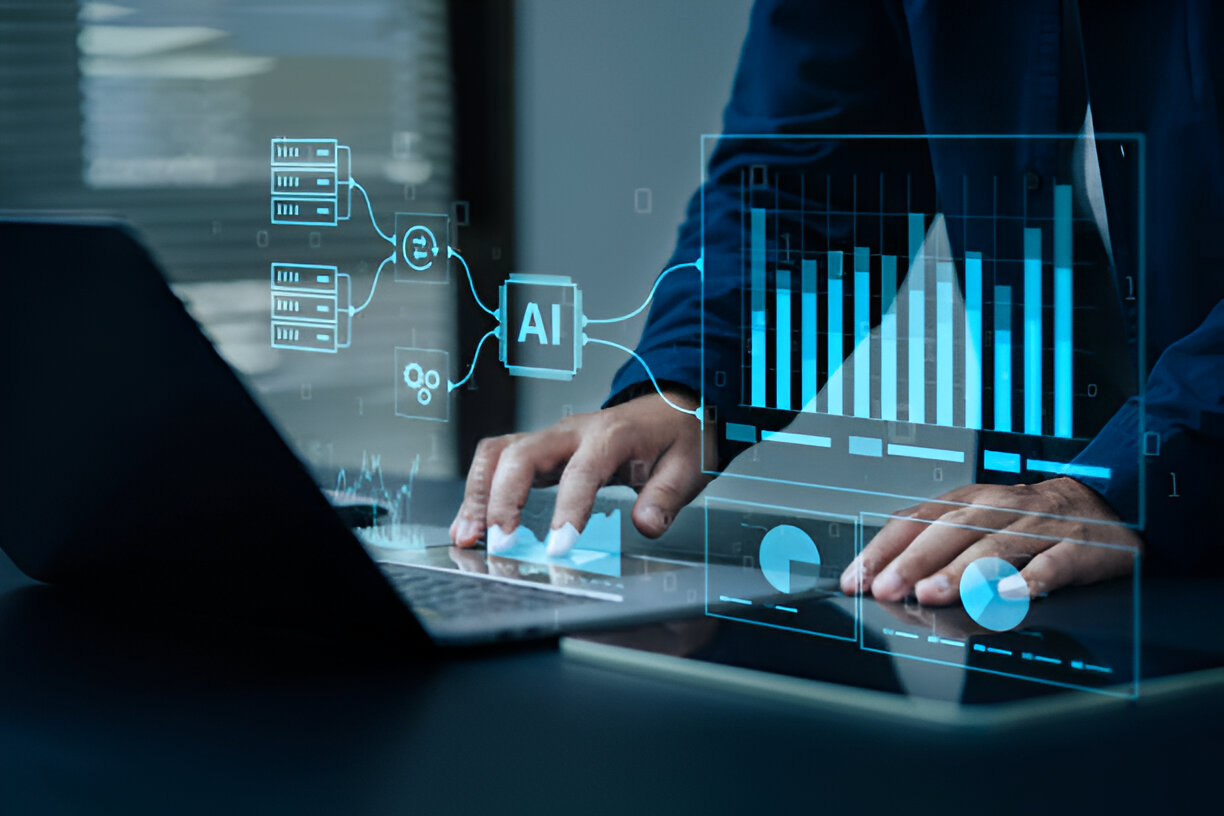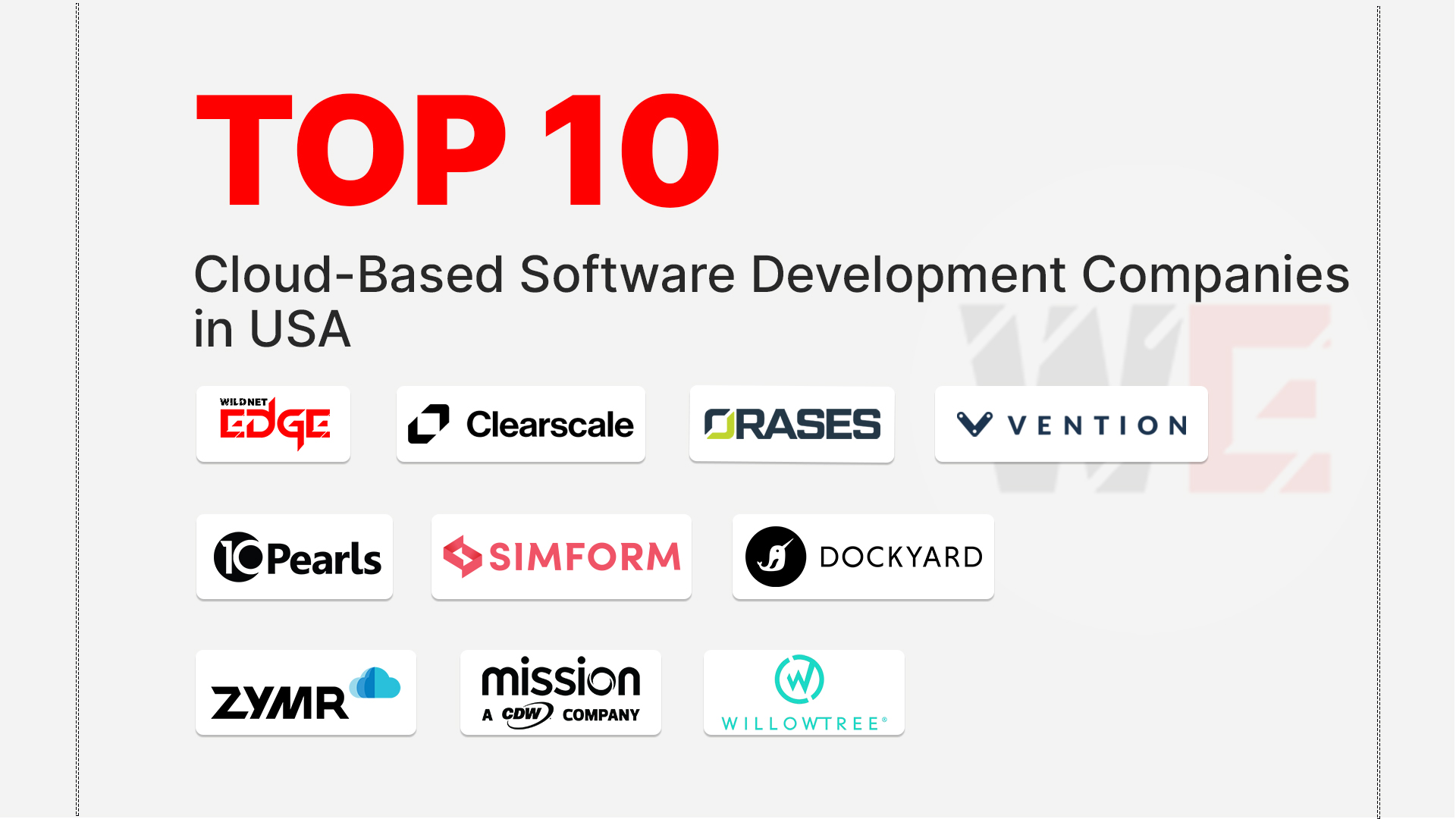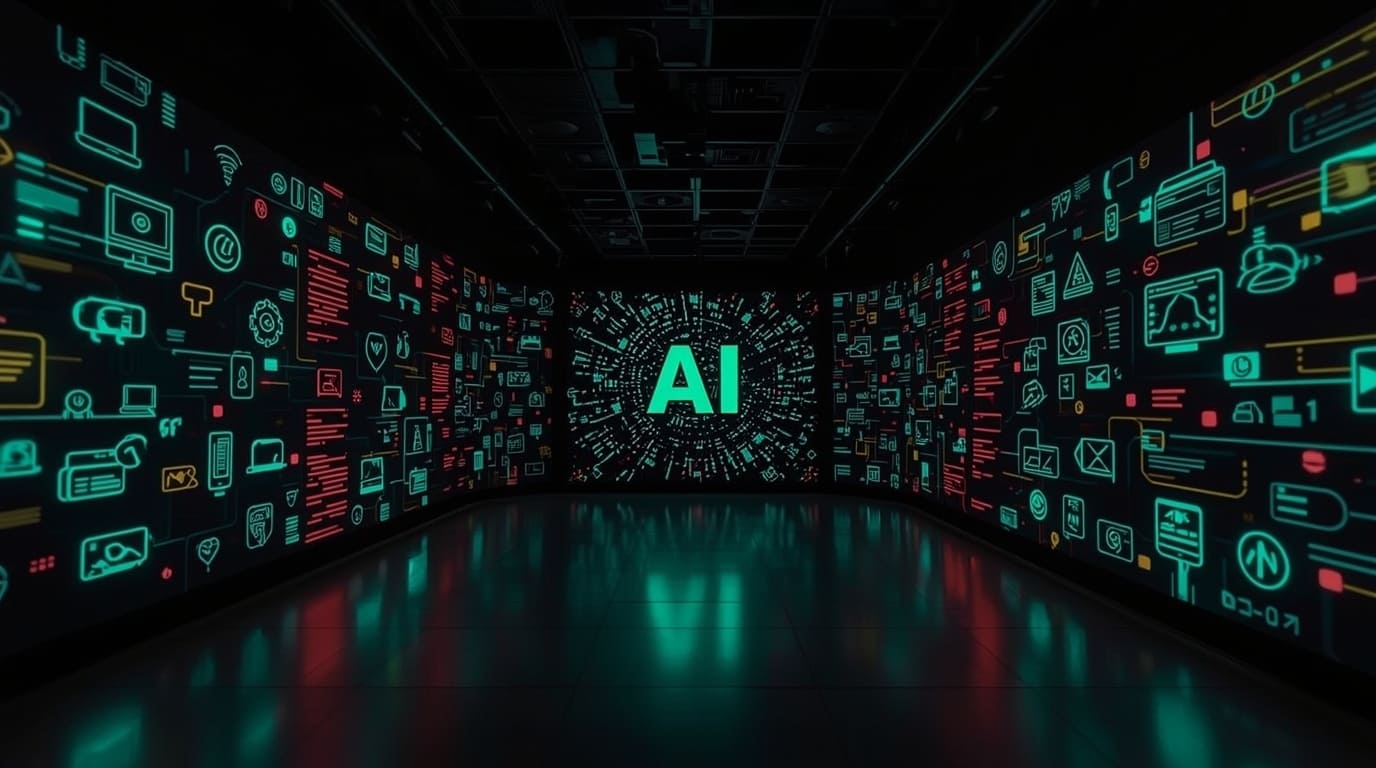Traditional marketing methods often struggle to keep pace with the dynamic nature of consumer behavior and technology advancements. Are your marketing campaigns efficient enough to meet today’s demands? Are they personalized to the degree that they resonate with your target audience? AI-driven marketing software development offers powerful solutions to enhance both the efficiency and effectiveness of your campaigns. The adoption of this advanced technology can radically transform your marketing strategies, allowing for more informed decision-making and greater engagement with customers.
Importance of AI-Driven Marketing Software
Understanding AI Capabilities
Artificial Intelligence encompasses a variety of capabilities that significantly impact marketing, with machine learning and data analysis being particularly vital. By utilizing machine learning, AI can analyze vast amounts of consumer data, allowing for a deeper understanding of consumer preferences and behavior. For instance, AI algorithms can identify patterns in consumer activities, predicting future buying behaviors based on historical data.
Consider a retail brand utilizing AI-driven software that analyzes customer interactions, purchase history, and even social media activity. The software can provide insights that help marketers tailor their campaigns with precision, thereby enhancing relevancy. Moreover, predictive analytics allows marketing teams to forecast the success of various strategies before implementation, enabling better allocation of resources and more confident decision-making processes.
Benefits Over Traditional Methods
The shift to AI-driven methods over traditional marketing techniques brings numerous advantages, such as increased speed, accuracy, and personalization. Unlike traditional methods, which rely heavily on batch processing and human intervention, AI systems can process data in real-time. This leads to quicker responses to market changes, allowing businesses to stay ahead of the competition.
Statistical data underscores the merits of adopting AI technology in marketing. According to research, businesses that have implemented AI-driven marketing solutions report an increase in ROI by up to 50%. This demonstrates not only that AI tools can optimize campaigns but also that they can yield substantial financial benefits over time. Enhanced targeting capabilities allow marketers to create personalized campaigns that resonate with their audience, resulting in improved customer experiences and brand loyalty.
Ad Automation with AI Software
Optimizing Ad Campaigns
AI-driven software plays a critical role in automating advertising campaigns. One of the most significant features is automated bidding strategies. By automatically adjusting bids based on competition, performance metrics, and real-time data, AI ensures that advertisers get the best possible placement for their ads while remaining within budget.
Additionally, AI can analyze various targeting parameters, such as demographics, interests, and behavioral patterns, to optimize ad placements. For example, if a specific audience segment engages more with a particular ad format or content type, AI systems can dynamically allocate more resources to those ads, improving overall campaign performance. As a result, marketing teams can focus on strategic planning rather than the minutiae of campaign management.
Case Studies in Ad Automation
Real-world examples highlight the power of ad automation. Take the case of a well-known online retailer that integrated AI-driven ad automation into their marketing strategy. Previously, the brand spent considerable time managing ad placements manually, leading to inconsistencies and a lack of optimization. After adopting AI software, the retailer experienced a staggering 70% increase in click-through rates and a 60% reduction in customer acquisition costs within just a few months.
Another example involves a technology company that utilized AI to analyze user behavior and optimize its ad campaigns dynamically. With the right algorithms in place, they achieved a 120% increase in conversion rates compared to their previous non-AI-driven campaigns. This illustrates not just the potential for improvement through automation, but the tangible results that companies can achieve by implementing AI-driven marketing solutions.
Features of Effective AI Marketing Software
Key Functionalities to Look For
When selecting AI-driven marketing software, organizations should prioritize specific functionalities that can significantly enhance their marketing strategies. Key features to consider include:
- Predictive Analytics: This enables companies to anticipate customer behavior and trends, allowing for more effective campaign strategies.
- Customer Segmentation: AI can analyze customer data to create targeted segments, resulting in personalized marketing efforts.
- Automated Insights: Having the capability to receive data-driven insights without manual effort enhances decision-making speed.
These functionalities equip marketing teams with the intelligence needed to devise strategies that not only align closely with consumer needs but also improve engagement and conversion rates.
Compatibility with Existing Systems
A smooth transition to AI-driven marketing software is crucial for minimizing disruption and maximizing benefits. Businesses should ensure that the AI solution they choose is compatible with existing systems, such as Customer Relationship Management (CRM) tools and email marketing platforms. When AI tools seamlessly integrate with current workflows, teams can leverage their existing resources while benefiting from enhanced capabilities.
Moreover, choosing a system that can import historical data is essential, as it helps AI models learn and adapt to the unique characteristics of an organization’s audience. This integration process facilitates a seamless transition toward AI-driven marketing, allowing businesses to capitalize on new opportunities without a steep learning curve or significant downtime.
Measuring Success in AI-Driven Campaigns
Key Performance Indicators (KPIs)
Measuring the success of AI-driven marketing campaigns is essential for continuous improvement and strategic reallocation. Key Performance Indicators (KPIs) specific to AI-driven efforts include:
- Customer Engagement Rate: This measures how effectively audiences interact with your content.
- Conversion Rates: Understanding how many users take desired actions can reveal the effectiveness of your campaigns.
- Return on Investment (ROI): Calculating ROI helps gauge the financial success of marketing efforts versus expenditures.
These KPIs provide invaluable insights into campaign performance and help firms refine their approach to optimize results continually.
Analyzing Data Effectively
Once data has been gathered from AI-driven campaigns, the next step is the effective analysis of this information. Tools like Google Analytics and AI-powered dashboard solutions allow marketing teams to visualize data in comprehensible formats. For example, predictive models can identify high-value customer segments that yield the best returns.
Moreover, AI can unveil trends and insights that allow for immediate course corrections in ongoing campaigns. For instance, if preliminary data suggests low engagement from a particular demographic, marketing teams can re-strategize by pivoting content or ad placements before significant budget spends occur. This level of responsiveness, driven by real-time data, can be a game-changer for marketers.
Challenges of Implementing AI Marketing Software
Common Roadblocks
While the benefits of AI-driven marketing software development are substantial, companies often face common roadblocks during implementation. Data privacy concerns can hinder companies from collecting and utilizing sufficient data to feed AI models effectively. To address these issues, organizations should foster transparent data practices and communicate how consumer data is being used responsibly.
Technical integration is another significant challenge. Companies must ensure that their existing infrastructure can support new AI tools. Conducting thorough compatibility assessments during the selection process is essential to mitigate these technical issues.
Ensuring Team Readiness
Implementing AI technology requires not just technical solutions but also ensures that the marketing team is ready to adapt. Training staff on new systems is crucial; investing in upskilling initiatives can make a world of difference in the effectiveness of AI integration. Workshops, hands-on training, and resources can help foster a culture of innovation within marketing teams.
Moreover, leadership should cultivate an environment where experimentation is encouraged, and team members feel empowered to leverage AI tools creatively. This mindset shift can pave the way for more effective AI-driven campaigns and greater employee satisfaction.
Future Trends in AI-Driven Marketing Development
Emerging Technologies to Watch
As AI continues to evolve, several emerging technologies show potential in transforming marketing strategies further. Natural language processing (NLP) is one such technology that allows for better understanding of consumer sentiment and text analytics in marketing. AI chatbots are also revolutionizing customer interactions by providing instant, personalized responses that enhance customer experience.
AI-driven content creation tools are gaining traction, allowing marketers to generate relevant content at scale quickly. These innovative tools can significantly streamline content marketing efforts, ensuring that messaging remains consistent and resonates with target audiences effectively.
Predictions for the Marketing Landscape
Experts predict that the integration of AI in marketing will only continue to grow, with an increasing emphasis on personalization and customer experience. As AI systems become more sophisticated, marketers will have access to average customer journeys, allowing for more tailor-made experiences.
Moreover, as businesses adopt AI, the need for a human touch will persist, emphasizing the importance of striking a balance between automation and personal interaction. The combination of AI’s predictive capabilities with human creativity will undoubtedly shape the future marketing landscape.
Conclusion
AI-driven marketing software development offers a transformative potential that can elevate marketing campaigns to new heights. By leveraging cutting-edge technologies and embracing data-driven strategies, businesses can enhance their efficiency, effectiveness, and overall customer engagement. As an AI-first company, Wildnet Edge has established itself as a trusted authority in the marketing tech space, offering innovative solutions tailored to your unique needs.
If you’re ready to explore how AI can revolutionize your marketing efforts, don’t wait. Harness the power of AI-driven solutions to transform your campaigns today!
FAQs
Q1: How can AI-driven marketing software improve my campaigns?
AI-driven marketing software improves campaign efficiency, targeting accuracy, and personalization by leveraging advanced data analytics to tailor messages to specific audience segments.
Q2: What is ad automation in AI marketing software?
Ad automation refers to the use of AI to optimize ad placements and bidding strategies dynamically in real-time, leading to enhanced campaign performance and cost savings.
Q3: What key features should I look for in AI marketing tools?
Look for features like predictive analytics for forecasting, customer segmentation capabilities for targeted marketing, and robust integration options for seamless synchronization with existing systems.
Q4: How can I measure success with AI-driven marketing campaigns?
Success can be measured using specific KPIs, such as customer engagement rates, conversion rates, and ROI metrics, tailored to assess the impact of AI-driven efforts.
Q5: What challenges might I face when implementing AI marketing software?
Common challenges include data privacy issues, difficulties with technical integration, and the need to ensure team readiness through training and support to adopt new technologies effectively.

Nitin Agarwal is a veteran in custom software development. He is fascinated by how software can turn ideas into real-world solutions. With extensive experience designing scalable and efficient systems, he focuses on creating software that delivers tangible results. Nitin enjoys exploring emerging technologies, taking on challenging projects, and mentoring teams to bring ideas to life. He believes that good software is not just about code; it’s about understanding problems and creating value for users. For him, great software combines thoughtful design, clever engineering, and a clear understanding of the problems it’s meant to solve.
 sales@wildnetedge.com
sales@wildnetedge.com +1 (212) 901 8616
+1 (212) 901 8616 +1 (437) 225-7733
+1 (437) 225-7733















 ChatGPT Development & Enablement
ChatGPT Development & Enablement Hire AI & ChatGPT Experts
Hire AI & ChatGPT Experts ChatGPT Apps by Industry
ChatGPT Apps by Industry ChatGPT Blog
ChatGPT Blog ChatGPT Case study
ChatGPT Case study AI Development Services
AI Development Services Industry AI Solutions
Industry AI Solutions AI Consulting & Research
AI Consulting & Research Automation & Intelligence
Automation & Intelligence















